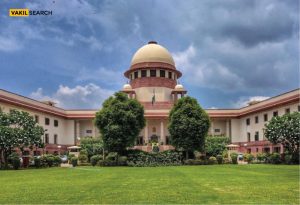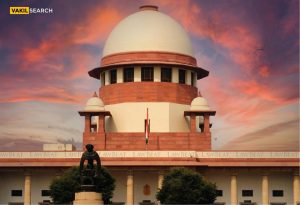Table of Contents
ToggleSC Adjourns Hearing to April 1
The Supreme Court has decided to defer the hearing on petitions challenging the Places of Worship (Special Provisions) Act, 1991, to the first week of April. Chief Justice of India (CJI) Sanjiv Khanna, along with Justice Sanjay Kumar, announced that the matter would be listed in the week commencing April 1. This decision follows a surge in intervention applications and fresh petitions concerning the Act.
Understanding the Places of Worship Act, 1991
The Act aims to preserve the religious character of places of worship as they stood on August 15, 1947. It strictly prohibits legal proceedings that attempt to alter their status. However, the law makes an exception for the Ram Janmabhoomi-Babri Masjid site in Ayodhya.
Why Is the Act Being Challenged?
In 2020, advocate Ashwini Kumar Upadhyay filed a petition arguing that the Act violates the fundamental rights of religious communities. According to him, the law unfairly restricts certain groups from reclaiming historically significant places of worship. Meanwhile, others, including Jamiat Ulema-i-Hind, have urged the Court to enforce the Act strictly to prevent communal disputes.
CJI Khanna Issues a Caution Against New Petitions
During the hearing, CJI Khanna expressed concern over the increasing number of petitions. He firmly stated, “There is a limit to which petitions can be filed. Enough is enough. There has to be an end to this.” The bench made it clear that no new petitions would be accepted. However, those who wanted to introduce additional legal grounds could still submit intervention applications. Consequently, the Court dismissed pending writ petitions that had not yet received notice.
Union Government Has Yet to Respond
Despite multiple extensions, the Union Government has not submitted its counter-affidavit. The Supreme Court had previously set an October 31, 2023, deadline for submission. However, the delay continues, raising concerns about the government’s stance. Since its response could significantly influence the case, many are closely watching for further developments.

Who Are the Key Petitioners and Intervenors?
Several prominent legal representatives appeared in the case. Senior Advocate Rakesh Dwivedi represented the main petitioner, Ashwini Kumar Upadhyay. In addition, Senior Advocates Dushyant Dave, Vikas Singh, and Advocate Nizam Pasha spoke for other parties. Several organizations and political figures have also submitted intervention applications, including:
- Gyanvapi Mosque Managing Committee
- Maharashtra MLA Dr. Jitendra Satish Awhad
- Communist Party of India (Marxist), represented by Prakash Karat
- Mathura Shahi Idgah Masjid Committee
- Rajya Sabha MP Manoj Jha (RJD)
- Samajwadi Party leader and MP Iqra Choudhary
SC’s Previous Orders on Religious Sites
In December 2024, a three-judge bench halted fresh suits and survey orders against religious sites. Additionally, the Court instructed lower courts to refrain from issuing interim or final orders in pending cases, including those related to the Gyanvapi Mosque, Mathura Shahi Idgah, and Sambhal Jama Masjid. This ruling aimed to prevent a flood of legal disputes and maintain communal peace.
Implications of the April Hearing
The Supreme Court’s decision in this case could have significant legal and social consequences. The hearing will address whether the 1991 Act aligns with constitutional provisions and whether courts can entertain disputes over historical religious sites. If the Union Government finally submits its response, it will shape the direction of the case.

Striking a Balance Between Legal, Historical, and Religious Interests
This case requires a careful approach since it involves legal interpretations, religious sentiments, and historical grievances. The Court’s ruling will likely serve as a precedent for handling similar disputes in the future. Meanwhile, maintaining peace and communal harmony remains a top priority.
Conclusion
By postponing the hearing, the Supreme Court has shown its intent to carefully evaluate the case before making a decision. As April approaches, all eyes will be on how the Court navigates this complex and sensitive legal battle. The outcome could redefine the legal status of religious sites and influence future disputes across India.
Stay updated with the latest news and other trending updates! Visit Vakilsearch News for exclusive insights.
- Kerala Court Orders NICL to Compensate ₹3.5L for Stolen Car - March 1, 2025
- Tamil Nadu Slams Tax Cut: Finance Minister Questions Centre - February 28, 2025
- Criminal Law Safeguards Apply to Accused in GST, Customs : SC - February 27, 2025

